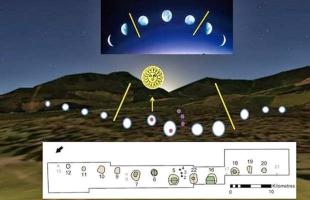Copy Link
Add to Bookmark
Report
Saxonia Issue 04 Part 013

The public domain companies
By Rumrunner/VOID
l
b00430112sax-344-112.raw
When loading an old diskmag, I read the text on the startupscreen telling
public domain companies how to distribute the mag. I started thinking about
this for a while, and came up with something I wanted to share with you.
After the idea of publishing freely distribuable software came about, it
didn't take long before people started wanting to earn money on this, and so
companies started to distribute software, taking prices that more than
covered the distribution cost, which was the idea of the concept of free
software. Public domain, shareware and freeware, although beeing different
in some aspects, all fell into the claws of the commercial world.
Ofcourse, there were some enthusiasts that did want to spread the software
without earning money from it, the most known to Amigapeople might be Fred
Fish, who built up an impressive collection. But, to judge from articles in
the mag which dealt most with this topic, Grapevine from LSD, it seems that
such companies were the exception instead of the rule. Thinking back I
remember a catalogue which I still think I have somewhere. It came in the
mail sometime in the late eighties, and the prices were not the ones
expected when this was supposed to be freely distribuable software (freeware
and public domain) and "try before you buy" software. The prices could be
upto a couple of hundred kroner (about twenty pounds) for a couple of disks.
Since this company had specialised in pc-software, the disks were also in
the 5 1/4 inch format, which was common at that time. Now, everybody knows
that disks were more expensive at that time, but not that much. Also keep in
mind that the postage was lower, and you soon find out who sat with the
biggest profit, it was certainly not the coder.
Right, when bbs'es became more widely used, the public domain companies lost
much of their customer-base as these got other ways to get the same software.
Modems were expensive and so were calling the bbs in question, especially if
it was not a local one, but it seems that many people still preferred to
let the telephone company and the modem-makers to get the money instead of
the pd-companies.
There were still people left though that distributed software by mailorder,
and this also included "our" (the scene's) productions. That's the reason
why demos (for instance Desert Dream from Kefrens) and diskmags (like
Grapevine from LSD) had special notes in to describe rules and/or
frighten off pd-companies from benefiting on others work.
Now, for many people pd-companies were the only way of getting productions
and them wanting to pay for it means that they must truly have been
interested in the scene. But we all know what happened a bit later. Internet
arrived for everybody and suddenly it was no use ordering from a company
anymore. People got used to get on an ftpserver and download the stuff they
wanted and/or download it directly from the homepage of the makers of the
wares in question.
Let's think for a minute about how the state would be if there were still
pd-companies about. For all I know, there might still be some, but I have
never heard from them in years. Even though they have taken illegal benefit
in other people's works, there was one good thing that could come out of it.
The companies could market the products and spread them to people who
perhaps wouldn't have seen for instance a demo from what we know as the
scene. Today, it's most likely that pd-companies wouldn't spread files on
disks, instead they would use cdroms. I remember all too well the first
years after cdroms became available for pc. In addition to the occasional
encyclopedia or moviedatabase, most cdroms (often sold in sets of 12)
contained perhaps 5 megabytes worth of files. After that time, the pc-market
has found ways of occupying more space per production to justify the use
of the media. Just look at for instance games.
On Amiga though, I suspect that pd-companies would still supply just a
couple of megabytes on each cd. The first example that comes to mind is
a collection of all demos from a certain party or such. The slightly more
wellfilled cd would perhaps contain demos released throughout a year or
similar. It seems that the closest empirical example of such is the
Aminet cd's, I dunno if they still release them or whether or not you get
a free cd for so and so many uploads.
Well, could the scene benefit from a situation as described above? It all
depends on one thing, how would the marketing and accessibility of the
goods be. If distributed through computershops, the benefit would be about
zero, the computershops only seems to sell the most popular stuff, be it
hardware or software. There are ofcourse exceptions, like GGS-Data and
Datakompaniet (damn greedy bastards, almost 10000 kroner for a powerpc
processorcard), but in the big picture, you have to look with a magnifying
glass to see them. Whether those who would be interested in buying
pd-cds with demoscene material have that magnifying glass is another
discussion.
However, distribution by mail-order, perhaps accompanied with webservices
seems to have some value to us sceners. Think for a while how many people
by an Amiga and equipment from Ebay, QXL and the likes, just to play a
game they remember from years back. Imagine also that the webpage where they
placed their bids had an advert from a company selling cd with demos.
Perhaps some of these buyers then would buy such a cd aswell, and imagine
the look on their faces when they saw that the production was pretty new
(or perhaps even brand new if it was close after a party, since sadly most
groups only release at parties nowadays). Those who buy an Amiga for
nostalgic reasons are more than likely to be more than average interested
in computers since, at the time Amiga was the common computer to have,
there were other buyers than of todays computers, most had another kind of
interest. Perhaps then, seeing new demos being released still could be a
breath of air on a dying fire in the viewers and they would like to join
the scene themselves. It's perhaps a longshot, but the possibility is
there. One can easily generalise, and say that the best method of
"employing" is by inspiring, and sadly sceners today are extremely bad
at this point, even when it comes to inspiring by supporting the active
sceners we already have.
�





















